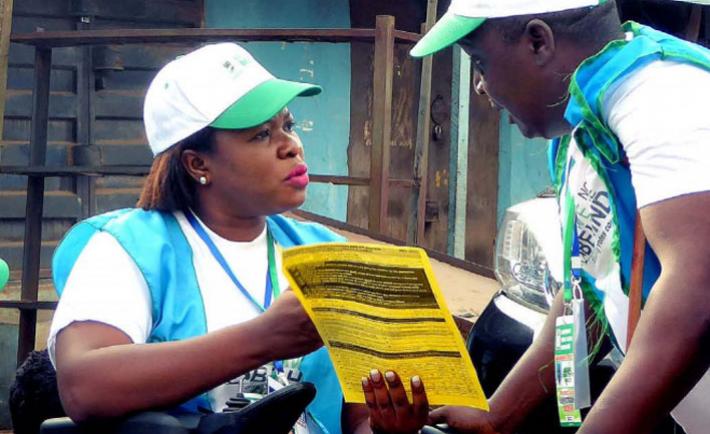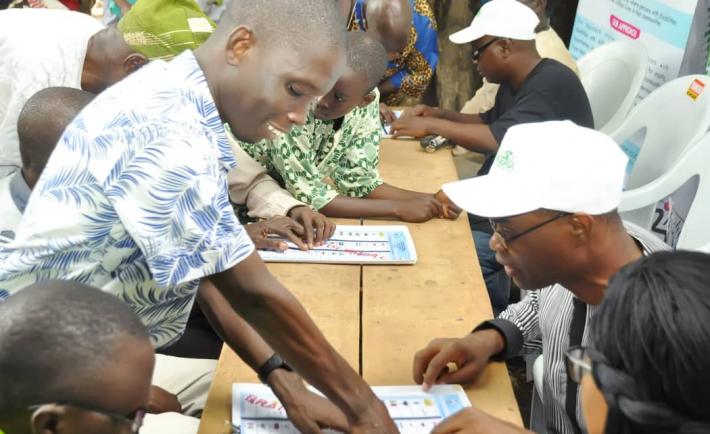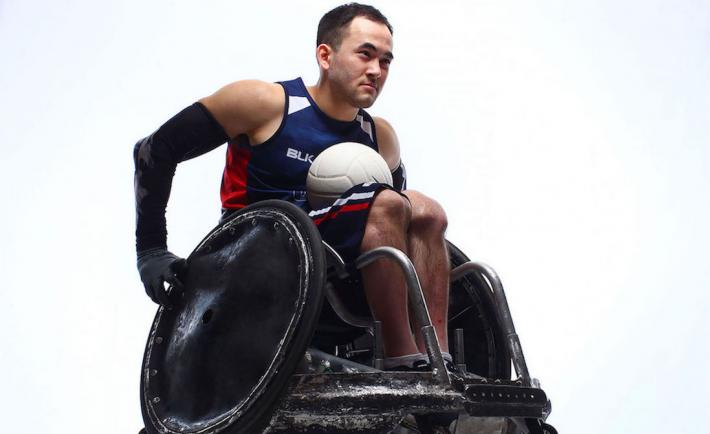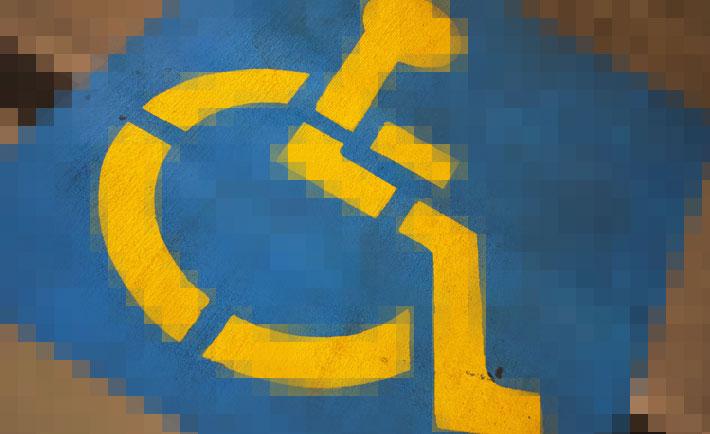In advocating for strong democratic institutions around the world, it is easy to overlook the rich diversity of democratic traditions across nations. In the United States, presidential hopefuls descend on Iowa every four years to grill steaks for eager caucus-goers. In London, commuters tune to BBC Radio to hear the prime minister and opposition leader spar on issues of the day. And in Nigeria, voters press their thumbs into ink pads, locate the name and party of their chosen candidate, and leave a thumbprint to mark their democratic choice.
The Success of Nigeria's Inaugural Braille Ballot Guides
Nigerian Disability Advocates Conduct First-Ever Election Accessibility Audits

IFA's Grace Jerry (left) discusses the audit checklist with another Access Nigeria observer during an election day deployment.
In Nigeria, there is a dearth of reliable data on the number of people with disabilities, let alone the challenges they face participating in elections. In its World Report on Disability, the World Health Organization estimates that 15 percent of the world’s population lives with some form of disability. Based on this report, IFA approximates that there are 25 million Nigerians with disabilities.
For this reason, disability rights organization and NDI partner Inclusive Friends Association (IFA) audited polling unit accessibility during off-cycle gubernatorial elections in Edo (September 2016) and Ondo (November 2016) states, using a sample-based observation deployment methodology similar to parallel vote tabulation. The audits assessed the availability of handrails, ramps, braille or tactile ballots, written voting instructions and sign language interpreters. Armed with these newfound statistics, disability rights advocates such as IFA are now better equipped to make advocacy demands on decision makers to address barriers to the political participation for persons with disabilities in Nigeria.
Inclusion Matters: From the Paralympics to NDI
Growing up, I dreamed of playing professional sports. When I first met a person who used a wheelchair like me and was a competitive athlete, I felt like I could do anything. Even if I had not made it to the Paralympic level, knowing that there existed a place where my disability and I were explicitly welcomed was heartening. The same is true at NDI. Inclusion is at the crux of what we do, whether it be with youth, persons with disabilities, LGBTI persons, or ethnic and religious minorities. When NDI and its partners explicitly talk about the importance of inclusion, it resonates with those who often feel excluded. NDI, and organizations like NDI, that take inclusion seriously and embrace it in their work are a source of hope for those of us in the disability space who can, at times, feel invisible. I can say from first hand experience, that true inclusion really does change lives.
Accessibility in the Digital Space: Making the Internet Open for Everyone
Barriers to participation are not always obvious to those without a disability, but something as simple as a wheelchair ramp can ensure a citizen's ability to exercise her right to vote. People with disabilities, who comprise 15 percent of the global population, are often blocked from aspects of public life. Efforts to improve the accessibility of physical spaces, such as polling stations and government buildings, are important, but in an increasingly digital age, it is also critical that people with disabilities are able to access and share information online. On June 16, NDI hosted an internal discussion with Nick Bristow, a lead web accessibility developer for the 18F team within the U.S. Government’s General Services Administration. During his discussion with NDI staff, Nick shared concrete skills on how to plan and design an accessible website, and cultivate organizational awareness of the needs of people with disabilities.



